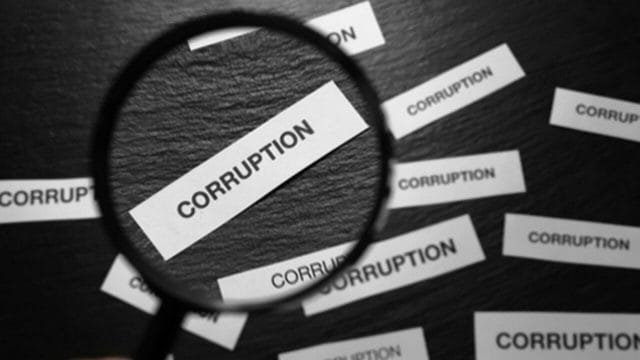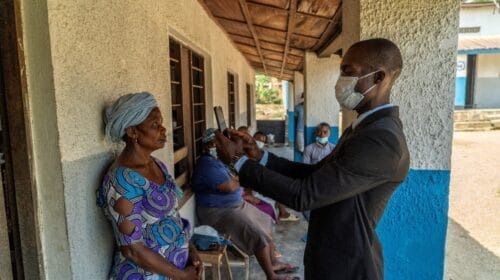Cemetery of corruption called Nigerian history

There is talk here and there of bringing back History with a capital “H” in the Nigerian school curriculum. It is cool by me to do a short history course with the ruling party, APC, and President Muhammadu Buhari. Necessary lessons need to be learnt before the elections that will lead into the next dispensation of Nigeria’s much touted democracy.
To start back in time, Nigeria’s first coup as arranged by Emmanuel Arinze Ifeajuna, Chukwuma Kaduna Nzeogwu, Adewale Ademoyega, etc. did raise the issue of corruption as a major prong of why they struck to sack the First Republic.
The entire coup attempt got mired in the corruption of ethnic politics until there was the bloodier counter-coup in which the revenge squad wanted secession, code-named “araba”, until the British colonial masters advised against herding into arid nothingness. Of course, the Nigeria-Biafra war supervened, and after the war, the youthful Head of State Yakubu Gowon proclaimed “No Victor, No Vanquished” and “Rehabilitation-Reconciliation-Reconstruction” that became more fictional than Chinua Achebe’s Things Fall Apart.
Nigeria’s first president, Dr. Nnamdi Azikiwe proposed the adoption of the theory of Diarchy in which the soldiers would be sharing power with civilians. Despite the denials here and there, Diarchy has been the Nigerian game over the years in the name of democracy.
The Nigerian military enjoyed a long stay in power until the Second Republic was inaugurated in 1979 with Alhaji Shehu Shagari as President.
It was a bad outing for democracy because of the absurd corruption upon the Twelve-Two-Third caper of Shagari’s announced victory over Chief Obafemi Awolowo.
The military overthrew the civilian government on the last day of 1983 with the selfsame charge of corruption ruling the airwaves amid martial music.
Incidentally, Buhari who is back in power today with the mantra of corruption in his every utterance took over the reins of the lootocracy. It needs to be stated that the corruption in his civil democracy of today trumps the corruption of the opposition politicians he jailed back then as a military ruler with uncountable years of imprisonment.
A major player in the Second Republic, Alhaji Umaru Dikko who had escaped to London, gave a countering press conference that corruption was only a smokescreen for the coup. According to Umaru Dikko, the soldiers took power because they were angry that the then ruling National Party of Nigeria (NPN) had paved the way for Vice-President Alex Ekwueme, an Igbo from the former Biafran enclave, to succeed Shagari as President. Buhari arranged a bungled attempt to put Umaru Dikko in a crate to bring him back to Nigeria to be tried for corruption.
The other dimension was that the military bigwigs did not find it funny that Shagari pardoned the Biafran leader, Chukwuemeka Odumegwu-Ojukwu, and brought him back to Nigeria from Cote d’Ivoire in a blaze of overwhelming fanfare. When the Second Republic was overthrown, Ojukwu was put away in prison by Buhari even as the former Biafran leader held no political post.
Even as the military took power touting Buhari’s integrity, the army boys would soon overthrow him with the charge that he suffered from the corruption of parochial and prebedalism that ran counter to the largeness of the Nigerian enterprise.
The military brought forward Military President Ibrahim Babangida to dominate the Nigerian space with political mumbo-jumbo, economic hocus-pocus and not a little corruption thrown in as state policy. It became quite clearer than structural adjustment that the military brass-hats could jump higher heights of corruption than their civilian counterparts.
Babangida succumbed to final disgrace when he annulled the June 12, 1993 presidential election won by his bosom friend Bashorun MKO Abiola.
Amid nationwide riots, Babangida quit power after cobbling up a very wobbly kind of “Diarchy” featuring Chief Ernest Shonekan and General Sani Abacha.
It did not take daredevil Abacha any time at all to kick out the overmatched Chief Shonekan. Whatever the civilian politicians achieved in corruption was eclipsed by Abacha because after his death, his loot was so much that it forced open even the secrecy of the secret vaults of the Swiss banks!
Upon the dubious death of Abacha, the military knew it had lost all respectability for staying in power, and the military honcho had to recruit its retired type, General Olusegun Obasanjo, to take over as civilian president in 1999.
It is a well-known Nigerian fact that the more things change, the more they remain the same. That is why the legendary musician Fela Anikulapo-Kuti will never truly die so long as his album “Army Arrangement” still plays, and his lines such as “Soja don put everybody for reverse” remain on the lips of Nigerians.
When Obasanjo had to leave power “against his personal wish and desire” after his Third Term bid failed, he brought to power an ailing civilian, Umaru Musa Yar’Adua, who of course died on the job. The next civilian on the line, the then Vice-President Goodluck Ebele Jonathan, met with all makes of obstacles before he could replace the dead man as President.
The Jonathan presidency was so harassed and openly told that Nigeria would cease to exist if he ever won re-election.
Buhari became touted as the godsend of change, but old habits die hard, and the old reasons for which he was overthrown by his military compatriots back in 1985 manifested with bewildering crudity in a so-called democracy.
Now Nigeria is back to worse than square one in the new season of electioneering with hardly any lessons learnt from history other than corrupting the hallowed name of democracy.




